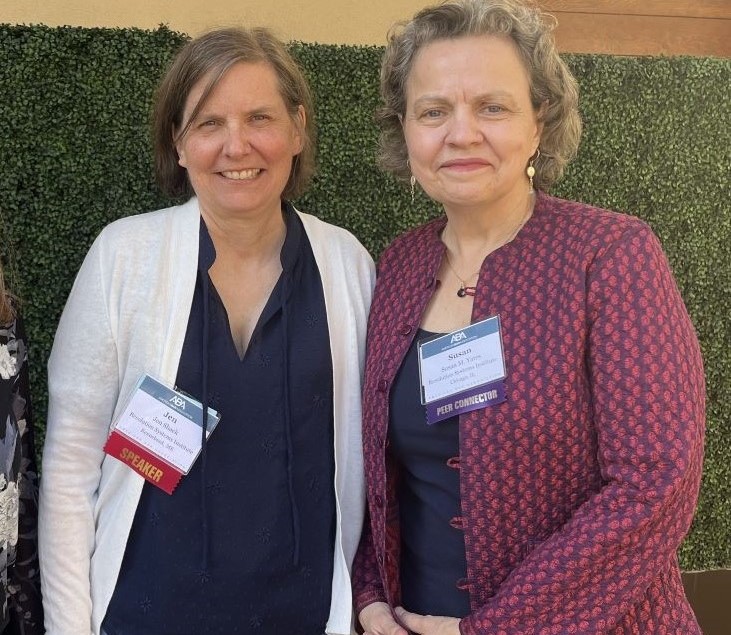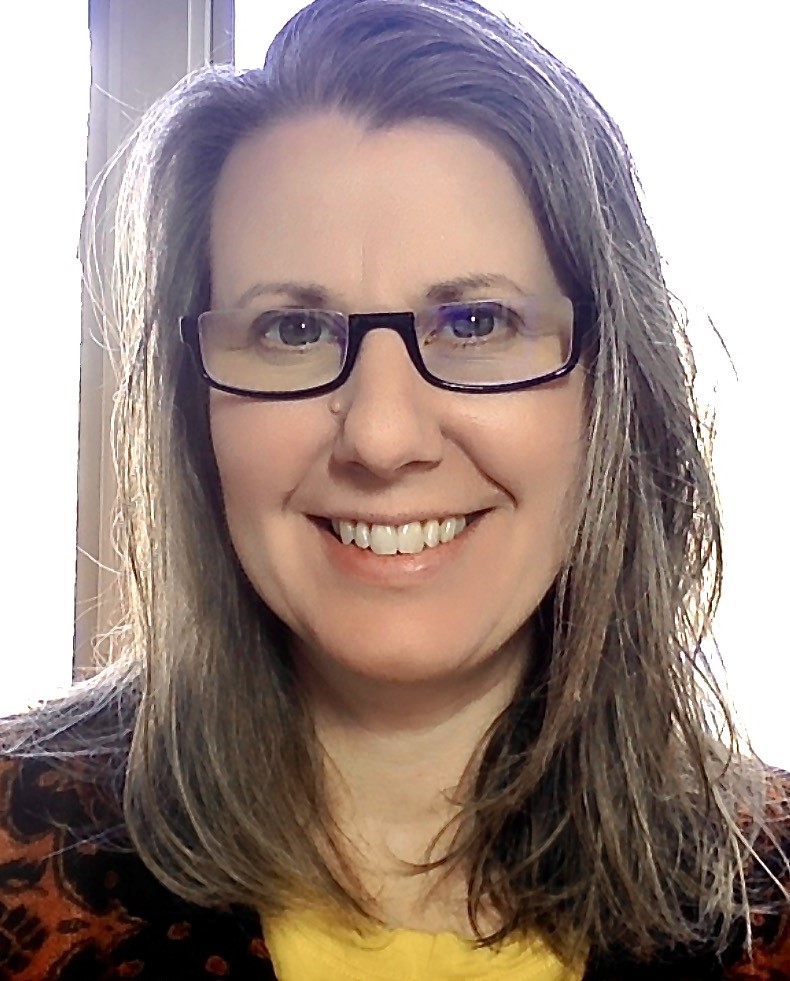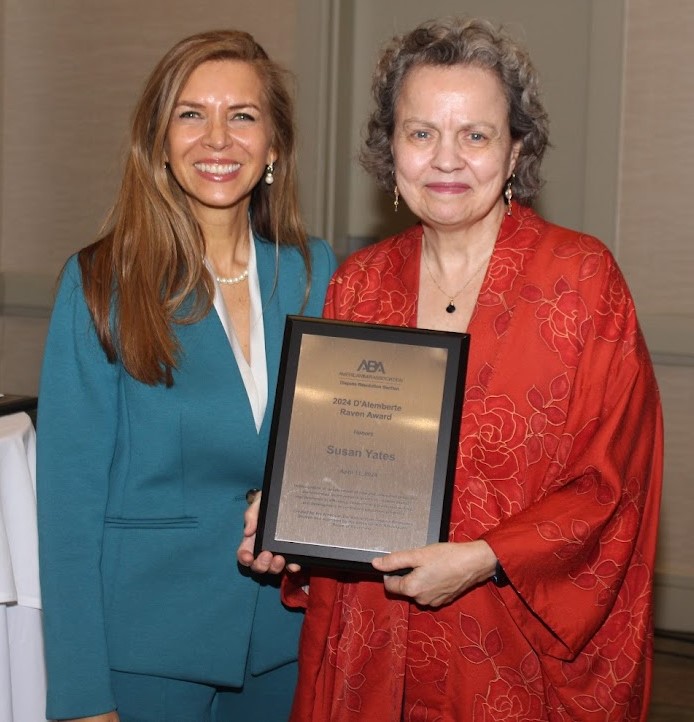With my last day as Executive Director at RSI — July 12, 2024 — rapidly approaching, I’m experiencing a bit of nostalgia, especially as I think back to the earliest years of RSI.
I wasn’t there at the very beginning, but as the story goes, the organization started in 1995 when a small group of lawyers and judges gathered around a fireplace in a hotel lobby after a mediation training and hatched the idea for a nonprofit entity that would assist court mediation programs. They called it the Center for Analysis of Alternative Dispute Resolution Systems (CAADRS).
I got involved soon thereafter as a consultant working on a research project. Then the executive committee of CAADRS hired me as its first full-time staff person, in 1997. One of my first tasks was to define the original mission: Collect and disseminate reliable information about court ADR.
In 1999, I hired Jennifer Shack, now RSI’s Director of Research, not knowing this would be the best decision I ever made at RSI. For me, working with Jen for these 25 years has been the greatest gift of my career.
Over the ensuing years, there have been many milestones. Here are a few that stand out to me:
- CAADRS was an early user of the internet, launching a website to disseminate reliable resources about court ADR
- CAADRS changed its name to Resolution Systems Institute (Whew!)
- RSI spun off from our original home as part of the Center for Conflict Resolution, becoming an independent nonprofit
- RSI more than doubled in size to respond to the foreclosure crisis — providing mediation services in three jurisdictions, training mediators all across Illinois, developing data collection tools and conducting two in-depth evaluations
- RSI developed and operated more mediation programs — first in child protection cases and then in eviction cases in response to the COVID pandemic
- More recently, RSI has decided to double down on our strengths in research and evaluation with the hiring of additional staff and taking on more projects
- For many years now, our mission statement has been “strengthening access to justice by enhancing court ADR systems”
If I started naming the names of all those who have supported RSI and me over these years, there would be no end to this post. Suffice to say I am deeply grateful to everyone who has been part of this incredible journey.
Fortunately, I am leaving RSI in good hands. Transitioning into the role previously held by a founding executive director is no small feat, but I know Heather Fogg is up to the challenge and will do a great job as the next RSI leader. Please join me in welcoming and supporting her!
Welcome, Heather!
| I am not a gambler, but I would bet no child has ever answered the question “What do you want to be when you grow up?” with “I want to run a nonprofit that helps improve access to justice by enhancing court ADR.” Well, there are now two people who could have said that: RSI’s incoming CEO Heather Fogg, and me. Heather’s first day at RSI will be June 17, 2024. Please join me in welcoming her! Heather is going to do such a great job building on RSI’s past successes and taking the organization to new heights. Here are just a few of the qualities she brings to this position: > A passion for quality ADR and the role it can play in enhancing access to justice > Deep experience with ADR, in particular mediation and restorative justice > Knowledge of court mediation, especially focusing on quality > Skills in communication and a focus on excellence > Background in and enthusiasm for the role research can play in improving court ADR Heather’s knowledge, expertise and character should assure everyone that this next phase for RSI will be an exciting one that is full of opportunity and success. Please join me in welcoming Heather on June 17! |
Jennifer Shack, left, and Susan Yates “then” and now.








